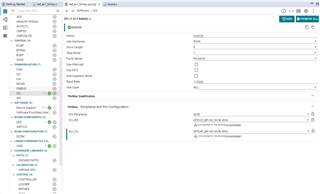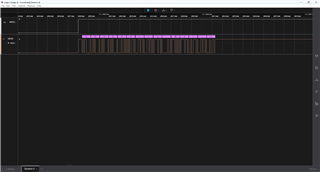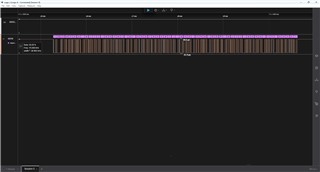Other Parts Discussed in Thread: SYSCONFIG
Hello everyone,
I am using TMS320F2800157 LaunchPad microcontroller.
When transmitting or receiving data between a laptop (with FTDI Serial to USB Cable) and a microcontroller using the SCI (UART) protocol, I utilize the sci_ex2_loopback_interrupts and sci_ex3_echoback code.
However, despite attempts to switch from loopback mode to non-loopback mode, the system persists in operating solely in loopback mode. During testing, I've observed that the SCIA port on the LaunchPad is not showing any data on the GPIO 28 and 29. But the registers show the incoming and outgoing data.
Then we tried SCIB, which is operational but it suffers from the loss of the last 2 bytes of transmitted data. Although, the missing two bytes comes with the second set of transmitted data. Additionally, the data isn't appearing on Putty (or any other software), but it is being received by the logic analyzer.
Can someone help us to find out the reason why the last two bytes of the TX is missing?
Regards,
Siva Kumar




